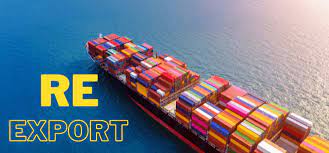Understanding Retransfer and Reexport Requirements in ITAR

In the world of international trade, particularly in industries dealing with defense articles and services, compliance with regulations is crucial. One such set of regulations that govern the export and import of defense-related items is the International Traffic in Arms Regulations (ITAR), administered by the U.S. Department of State. Among the many provisions within ITAR, two key concepts that often arise in discussions of compliance are retransfer and reexport requirements.
Retransfer Requirements:
Retransfer refers to the act of transferring controlled defense articles or technical data to another party within the United States, after initially receiving them from an authorized foreign party or another U.S. person. ITAR imposes strict regulations on retransfer to ensure that sensitive defense-related items do not end up in the wrong hands or are used for unauthorized purposes.
Under ITAR, a retransfer of defense articles or technical data may only occur if:
- Authorized by the U.S. Government: Prior approval from the U.S. Department of State is required for retransfers, except in specific circumstances where exemptions or agreements apply.
- Compliance with ITAR: The retransfer must comply with all relevant provisions of ITAR, including restrictions on end-use and end-users and license provisos.
- End-User Certification: The recipient of the retransfer must provide an end-user certification, confirming that they understand and will adhere to the limitations and obligations imposed by ITAR.
- Record-Keeping: Detailed records of all retransfers must be maintained by the transferring party for inspection purposes.
Reexport Requirements:
Reexport, on the other hand, involves the export of controlled defense articles or technical data from one foreign country to another, particularly when the items have already been exported from the United States. Like retransfer, reexport is subject to stringent regulations under ITAR to prevent unauthorized proliferation of defense-related items.
Key requirements for reexports under ITAR include:
- Authorization from the U.S. Government: Reexports of ITAR-controlled items typically require prior approval from the U.S. Department of State, unless exemptions or agreements apply.
- Compliance with ITAR: Reexports must adhere to all relevant provisions of ITAR, including restrictions on end-use and end-users, similar to retransfer requirements.
- End-User Certification: Similar to retransfer, the recipient of the reexport must provide an end-user certification, confirming compliance with ITAR regulations.
- Record-Keeping: Thorough documentation of all reexports must be maintained by the exporting party to ensure transparency and accountability.
Conclusion:
In conclusion, compliance with retransfer and reexport requirements under ITAR is essential for businesses and individuals involved in the export and import of defense-related items. Failure to adhere to these regulations can result in severe penalties, including fines and sanctions. Therefore, it is imperative for exporters, importers, and other relevant parties to familiarize themselves with the intricacies of ITAR and ensure full compliance to maintain the integrity of international trade in defense articles and services. By understanding and adhering to the retransfer and reexport requirements outlined in ITAR, businesses can navigate the complex landscape of international trade in defense-related items responsibly and ethically, while also contributing to global security efforts.
Comments